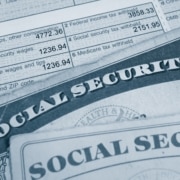Small Business Tax Tips
If you have questions about business taxes, you aren’t alone. Filing and paying taxes are dreaded tasks for many business owners. But with a little bit of planning and strategy, you can tackle your business taxes and even learn to find ways to save money along the way.
10 Tax Tips for Small Businesses
There’s a lot to know when it comes to small business taxes, but these are some of the most important tax tips to know to properly manage your business tax strategy.
Find a Trustworthy Accountant
Smart small business owners are always on the lookout for ways to minimize their tax liability. Finding a reputable and trustworthy accountant with whom you can partner to not just file your taxes, but to help you build and regularly adjust a tax strategy. Small business owners need more than just an accountant who will prepare financial statement and submit their taxes – you need a partner who can work with you throughout the year, tracking revenue and spend to help avoid cash flow problems. At the same time, they are giving regular advice and insight to ensure you are able to claim all credits and deductions available to you and your business while also helping you to avoid any pitfalls that could get you into trouble with the IRS.
Keep Your Business Finances Organized
For many business owners, managing taxes is stressful because of their lack of preparation and organization, according to a recent survey from Freshbooks. If you develop an organized system of tracking revenue and expenses, and stick to the system throughout the year, it will be much easier to pull the data you need when it’s time to file taxes. Using a financial and accounting software program or platform can be helpful for recording, tracking, and organizing your tax-related information.
Maximize Deductions
Tax deductions decrease your business’ recognized income, which allows you to pay lower taxes, and many small businesses qualify for many deductions, including:
- Business mileage
- Business interest and bank fees
- Legal and professional fees
- Business insurance
- Home office expenses
- Business travel expenses
By tracking all business expenses, you may be able to quickly lower your business’s taxable income, which will reduce the amount you’ll owe in taxes.
Consider Tax Credits
A tax credit is different from a deduction: Rather than reducing your taxable income, a tax credit allows you to subtract the amount of the credit from the amount of tax you owe. Small businesses may qualify for tax credits for employing workers from marginalized groups, purchasing an electric vehicle, providing childcare for employees, increasing energy efficiency in their buildings, and taking other actions. During the COVID-19 pandemic, the government offered tax credits for businesses that kept workers employed, and some businesses are still eligible for those Employment Retention Tax Credits.
Create a Plan for Paying Taxes
Most businesses are required to pay different types of taxes, including income tax, payroll tax, employment tax, excise tax, and state and local taxes. To keep all of your tax obligations straight, your business should have a plan for paying them and budget line items to ensure you have the funds available.
Consider Deferring Revenue and Expenses
Business owners can control the amount of tax they owe each year, to an extent, by adjusting revenue and expenses. For example, if you think your tax bill may be higher than you’re prepared to pay, you can defer some revenue to the following year by delaying the sending of an invoice or pushing a project to the next calendar year.
If your tax bill is manageable for the current year but may be higher next year, you can also defer expenses to the next year by waiting until January to purchase or finance new equipment, for example.
Consider Accelerating Payments
If you want to reduce your taxable income and you have a business loan, consider accelerating payments on the loan. This means you make extra, voluntary payments to reduce the balance of your loan more quickly—and because interest on a business loan can be a deductible business expense, you’ll also reduce your taxable income while paying off your loan faster. Just be sure that the extra payments you make are not directly to the principal of the loan as principal payments are NOT deductible. One of the easiest ways to do this is, for example, make your standard January payment during the December before.
Remember Quarterly Payments
Business owners are typically responsible for making quarterly tax payments based on the business revenue during the previous quarter. Quarterly tax payment deadlines are in April, June, September, and January. If you miss required quarterly tax payments, the IRS will charge penalties and interest.
Note any Changes in National and Local Tax Laws
Tax laws change regularly, so it’s wise to stay informed about any changes in national and local tax regulations. If you have a tax advisor, they will probably be able to keep you posted on any changes that might affect your business.
Follow Tax Deadlines and Extensions
Your deadline to file business taxes will depend on your business structure
- Sole proprietors and single-member LLCs would file a schedule C along with their Individual income tax returns. Individual returns are typically due April 15, unless this date falls on a weekend or holiday. Extensions can be requested by filing Form 4868 which would give you until October 15th to file.
- C-corps would file a Form 1120, which has a deadline of the 15th day of the fourth month after the close of a tax year. For most c-corps that date falls on April 15th. C-corps can also request an extension by filing form 7004.
- Partnerships, multi-member LLCs and S-Corps filing deadlines will be March 15th, unless you operate on a fiscal year basis. If you need to file an extension, you can request one using form 7004 which gives you until September 15th.
More >> Why Small Business Taxes Should be Filed Early
Biggest Tax Mistakes for Small Business Owners to Avoid
Filing taxes correctly is important for both maintaining compliance and mitigating the risk of an IRS audit. Here are some of the biggest tax mistakes that business owners sometimes make and how to avoid them.
Not Separating Personal and Business Expenses
When you start a business, it may seem simple to purchase business supplies with a personal credit card or personal funds, and to mingle personal and business expenses. However, this is a mistake. Over time, as the business grows, earns revenue, and has more expenses, it will become increasingly difficult to separate personal and business expenses. As a result, it’s impossible to prove that business expenses qualify the business for tax deductions.
Misclassifying Employees
When a business has employees, the IRS expects to collect payroll taxes including Social Security, Medicare, and unemployment taxes. If you are paying workers without filing appropriate employment tax forms, you must ensure that you can justify that the workers qualify to be independent contractors according to IRS rules. If not, you may be required to pay employment taxes in arrears.
Failing to Keep Thorough Records
Without thorough financial records, it’s impossible to file and pay business taxes appropriately. Tax filing requires you to report accurate revenue figures, payroll figures, and other business expenses to make sure you qualify for any deductions and pay the appropriate amounts.
Small Business Taxes Checklist
When you’re ready to prepare for small business tax filing, use this checklist to make sure you don’t forget anything.
- Gather financial information from the tax year.
- Find the right tax form based on your business structure.
- Consider tax deductions and tax credits that might apply to your business.
- Consider deferring revenue or expenses.
- Consider accelerating payments.
- Remember to calculate any estimated tax payments into your final tax bill.
- File by the tax deadline.
Small Business Tax Filing Requirements
Different types of business entities must meet different tax filing requirements. Here’s a look at the requirements for common small business structures.
Business Entity | Type of Tax | Tax Form |
Sole Proprietor |
Income tax |
Form 1040/1040SR Schedule C or F
|
Self-employment | Form 1040/1040SR Schedule SE
| |
Estimated tax
|
Form 1040-ES | |
Employment taxes
|
Forms 940 and 941, 944 or 943 | |
Partnership
|
Annual return of income
|
Form 1065 |
Employment taxes |
Forms 940 and 941, 944 or 943 | |
Partner in partnership (individual) |
|
|
Employment taxes | Form 1040/1040SR Schedule SE
| |
Estimated tax
|
Form 1040-ES | |
Corporation – C or S |
Income tax – C corporation
|
Form 1120
|
Income tax – S corporation
|
Form 1120-S | |
Estimated tax
|
Form 1120-W (C-corp only)
| |
Employment taxes
|
Forms 940 and 941, 944 or 943 | |
S Corporation Shareholder |
Income tax |
Form 1040/1040SR Schedule E
|
Estimated tax
|
Form 1040-ES |
Small Business Tax Tips FAQs
How do small businesses maximize tax returns?
Small businesses maximize their tax returns by taking all allowable tax deductions and tax credits to lower their tax burden as much as possible. They may also choose to defer revenue or expenses or accelerate owed payments (i.e. make your January payment in December) to further minimize their tax liability.
What business expenses are 100% deductible?
Many business expenses are 100% tax-deductible, including:
- Furniture purchased exclusively and entirely for office use. Furniture must be deducted the year in which it was purchased.
- Office equipment, including computers, printers, scanners, etc.
- Business travel costs for lodging (hotels, motels) and transportation (car rentals, airfare, train fares, bus tickets, etc).
- Business phone bills
- Gifts to clients and employees up to $25 per person per year
- Ordinary and necessary business-related bank fees
- Advertising and marketing expenses
- Employee training and education expenses
Is small business financing tax deductible?
The interest paid on small business loans is tax deductible for the business. However, the principal repaid on the loan is not a tax-deductible expense.





